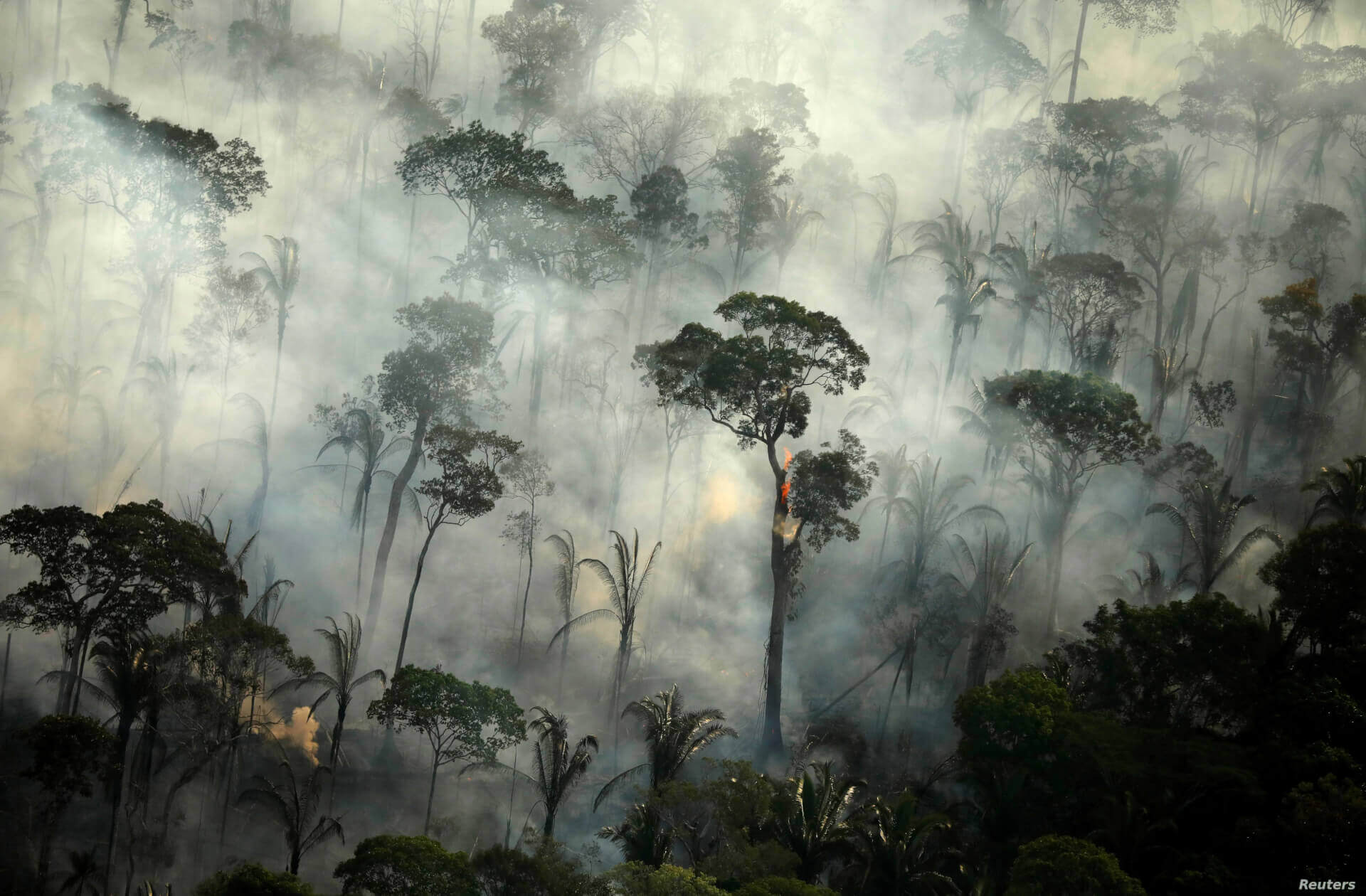Brazilian government data reveals that deforestation in the Amazon rainforest increased for the 14th consecutive month, marking the highest level of deforestation since 2005. In addition, Brazil's National Institute for Space Research (INPE) recorded 2,248 fires in the Amazon in June, the highest such number since 2007. President Jair Bolsonaro is accused of giving free rein to illegal loggers, ranchers and land speculators, and of reducing environmental regulations to allow for more commercial mining and farming in order to grow the economy. In fact, the first case of the coronavirus among the Indigenous population of Brazil was caused by a miner who had illegally entered Yanomami territory.
During the campaign trail, Bolsonaro described environmental regulations as an “obstacle to economic growth”, and promised to reduce some of these laws to allow for commercial exploitation. For instance, there are now fewer fines and warnings issued to offenders, and also less seizure and destruction of illegal equipment in protected areas. In fact, during the first six months of 2019, enforcement actions were found to have fallen by 20% compared to the same period in 2018, when Bolsonaro was not yet in power. The government is also trying to pass a law that would allow farmers who had illegally seized land in protected areas to gain legal status.
Deforestation threatens both the environment and the roughly 900,000 Indigenous peoples of Brazil. However, in response to these concerns, Bolsonaro has said that deforestation is part of the “cultural” fabric of Brazil and will “never stop”. In fact, his stance against the Indigenous population has been a long-running thread in his political history.
In 1998, Bolsonaro said, “It’s a shame that the Brazilian cavalry hasn’t been as efficient as the Americans, who exterminated the Indians,” in his capacity as an army captain at the time. In 2015, he said, “The Indians do not speak our language, they do not have money, they do not have culture.” In 2016, he said he would “rip up" Indigenous territory once he was in office and “give all the ranchers guns”. In 2017, he said, “If I become President there will not be a centimeter more of Indigenous land.” In 2018, he corrected himself to say he meant “not one millimeter”. Since entering office, he has said that the Indigenous people are like “animals in zoos” and “prehistoric men”.
During the ongoing pandemic, Bolsonaro vetoed a Congress-approved provision that would force the federal government to provide drinking water, disinfectants, and guarantee hospital beds to Indigenous communities.
Amid this backdrop, in June, a group of 29 global companies, with a combined total of over $3.75 trillion in assets, sent a joint letter to Brazilian ambassadors in their respective countries in which they threaten to divest from beef producers, grains traders, and government bonds if the Brazilian government does not adequately commit to tackling deforestation in the Amazon rainforest. The letter was sent to the Brazilian embassies in Norway, Sweden, France, Denmark, Netherlands, the United States (US), and the United Kingdom (UK). In it, they decry the “dismantling of environmental and human rights policies”, saying that it is “creating widespread uncertainty about the conditions for investing in or providing financial services to Brazil”.
Such actions and policies drove some European politicians to say they would vote against the ratification of a free-trade agreement (FTA) between the European Union (EU) and the Mercosur customs union, which included Brazil. Ultimately, the deal was signed last June; however, it is clear that the undercurrents of opposition to Bolsonaro’s environmental degradation remain.
Accordingly, the letter read: “Considering increasing deforestation rates in Brazil, we are concerned that companies exposed to potential deforestation in their Brazilian operations and supply chains will face increasing difficulty accessing international markets. Brazilian sovereign bonds are also likely to be deemed high risk if deforestation continue”.
Therefore, on July 10, the Brazilian government announced that it plans to ban setting fires in the Amazon for 120 days after Vice President Hamilton Mourão met with the investors over video-conference. Given how deforestation and fire-setting in the Amazon increased in the days following the investors’ letter, however, it is uncertain whether this policy will be enforced.
In early June, amid heightened criticism of his coronavirus response, Bolsonaro ordered the government to stop publishing data on coronavirus deaths and infections, with the government website now only showing from the previous 24 hours. Therefore, it remains to be seen how Bolsonaro will respond to these latest figures. In the past, he has responded to international criticism of his environmental policies with crude remarks such as “Brazil is like a virgin that every pervert from the outside lusts for” and “The Amazon is ours, not yours”, believing that international actors only push for conservation so that they can exploit the Amazon’s resources themselves.
Deforestation of Amazon Rainforest Increases for Fourteenth Consecutive Month
Brazilian President Jair Bolsonaro has rolled back several environmental regulations.
July 13, 2020

IMAGE SOURCE: BRUNO KELLY/ REUTERS
